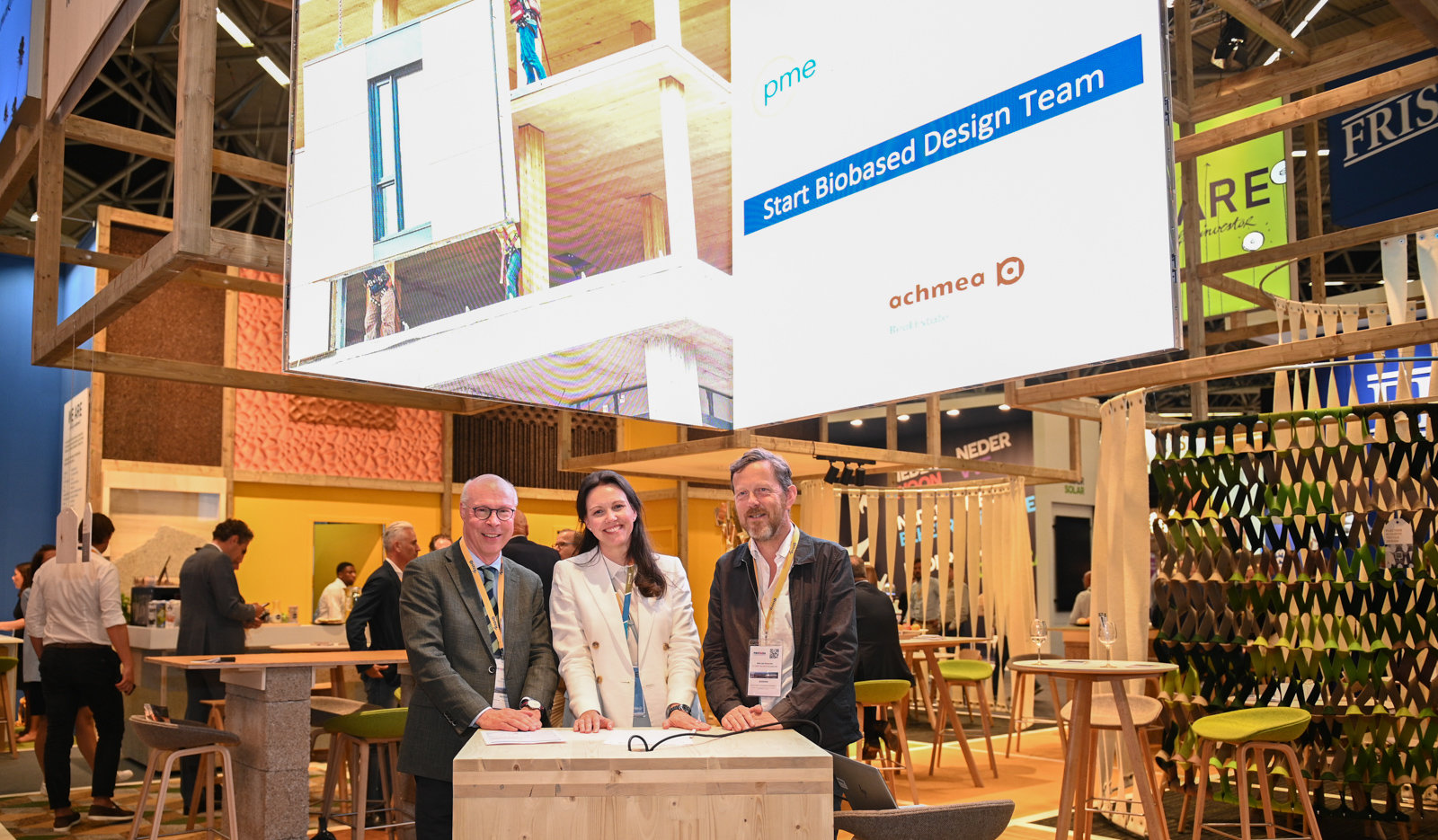TU Delft’s Faculty of Architecture and the Built Environment, Pension Fund PME and Achmea Real Estate start Biobased Design Team
On 14 June, Dick van Gameren, dean of TU Delft's Faculty of Architecture and the Built Environment (A+BE), Eric Uijen of Pension Fund PME and Mascha Hendrickx of Achmea Real Estate signed a cooperation agreement at the Provada real estate fair. Thanks in part to the support of PME and Achmea Real Estate, a team of scientists, including a prospective professor, at TU Delft's A+BE Faculty will be able to start honing their knowledge and expertise of designing buildings made from wood and other biobased materials. The Biobased Design Team will study these materials and teach students about the potential applications. The goal is to drive the transition to biobased construction and reduce carbon emissions throughout the design and build chain.

Dick van Gameren: “We are delighted to be able to take this important subject to the next level with the help of Achmea Real Estate and PME. In light of the climate crisis and our planet's limited resources, applying sustainable and circular solutions to the design and construction of our built environment is becoming increasingly important. For now and for tomorrow's society. By setting up a Biobased Design Team within our Faculty, we hope to use our research and teaching to accelerate the construction industry’s transition to wood and other biobased materials."
Eric Uijen: “Climate change and loss of biodiversity pose risks to PME's returns, and therefore to the pensions of our members. To reduce these risks and contribute to the goals in the Paris Agreement, we will have to halve our real estate emissions by 2030 on the road to energy and carbon neutrality by 2050. These goals are of paramount importance to us, because there can be no stable long-term if we do not manage to curb global warming and create a stable world. As far as PME is concerned, biobased construction is part of the solution.”
Societal necessity
Future buildings and homes will have to be much more energy efficient, sustainable and affordable. Recent developments in construction systems based on biobased materials, including wood, offer possible solutions. On top of that, other natural materials such as flax and hemp are also promising examples of renewable, low-carbon materials. These materials can be used for the high-quality sustainable building solutions that will be desperately needed in the coming years to build the many new homes the Netherlands requires.